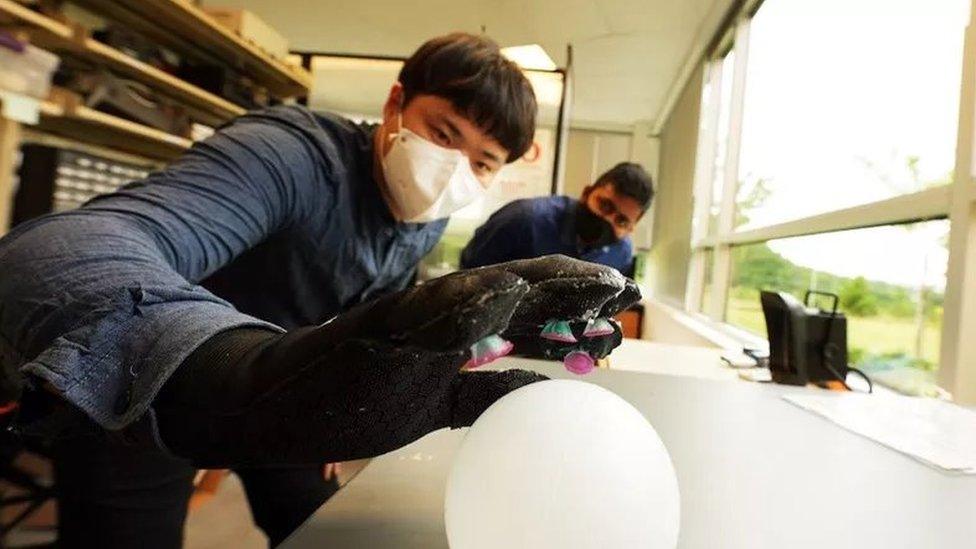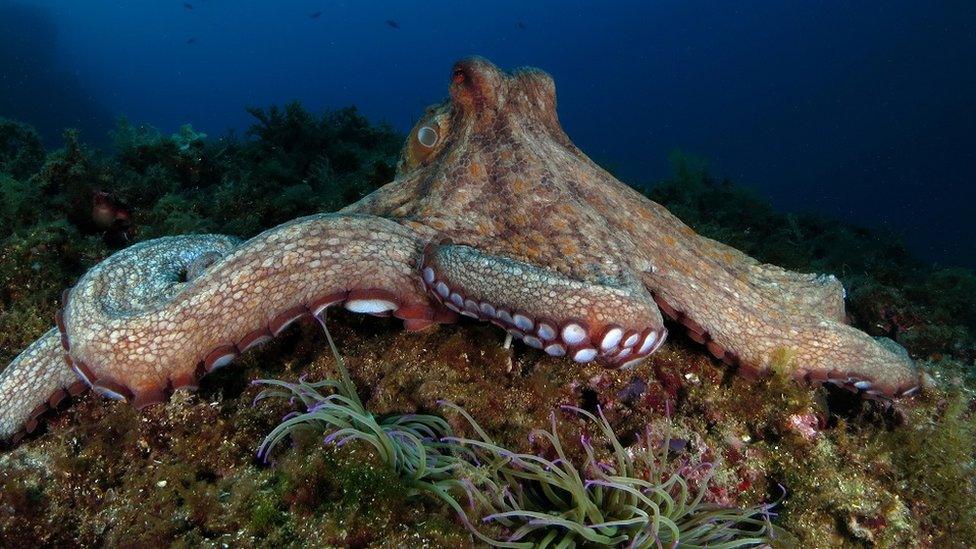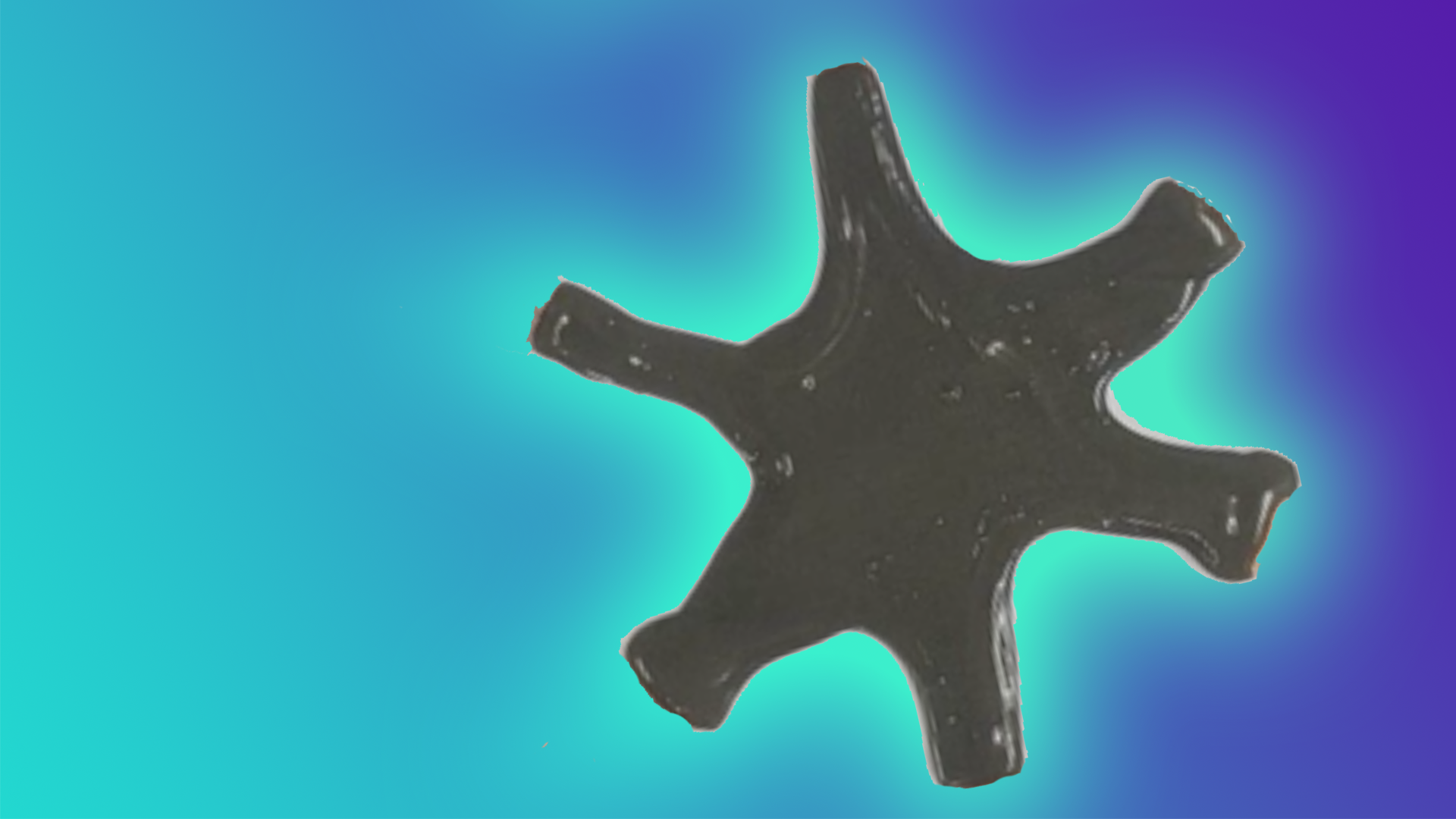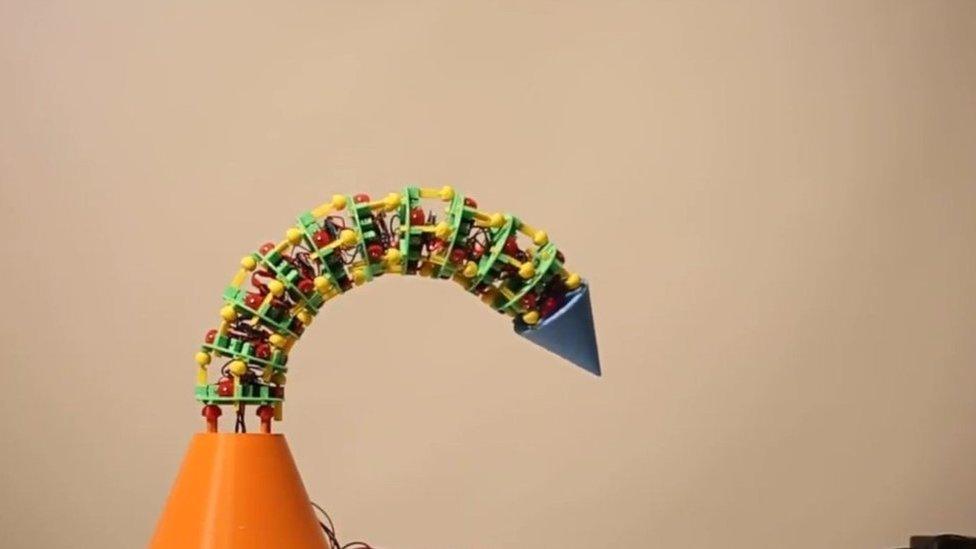Octopus gloves at Virginia Tech help divers grip underwater
- Published
- comments

The glove was inspired by the octopus
A team of scientists have designed a special glove inspired by the octopus!
It can be difficult for humans to hold onto certain objects underwater as we're not naturally designed to live in that environment.
This can prove challenging for people whose work is largely based around water, including rescue divers, underwater archaeologists and bridge engineers. All these jobs involve people using their hands to extract people and objects from water.
Octopuses on the other hand, which are known for their eight limbs covered in powerful suckers, are able to grip objects underwater with ease.
This led a group of engineers based at Virginia Tech university in America to design what they've called the Octa-glove!
The glove takes inspiration from the suckers found on octopus' arms. It can grip onto and release objects easily.
"When we look at the octopus, the adhesive certainly stands out, quickly activating and releasing adhesion on demand," said assistant professor Michael Bartlett who led the project.
"What is just as interesting, though, is that the octopus controls over 2,000 suckers across eight arms by processing information from diverse chemical and mechanical sensors. The octopus is really bringing together adhesion tunability, sensing, and control to manipulate underwater objects."

The octopus is great at gripping onto objects with its suckers
The researchers formed their own suckers using rubber because it was flexible enough to stick to both flat and curved surfaces.
Using electronics they also developed a way for the glove to detect objects and trigger its ability to grab onto them using suckers - like an octopus.
"By merging soft, responsive adhesive materials with embedded electronics, we can grasp objects without having to squeeze," said Bartlett.
"It makes handling wet or underwater objects much easier and more natural. The electronics can activate and release adhesion quickly. Just move your hand toward an object, and the glove does the work to grasp. It can all be done without the user pressing a single button."

The scientists used rubber to make the gloves suckers
Through their testing, the scientists were able to grip onto lots of different objects including metal toys, the curved side of a spoon, a box and a plate.
Although the engineers are happy with the progress so far, they say there's still lots to learn about the octopus, its functions and how to mimic nature's full capabilities.
They believe the glove may one day be used in the areas of robotics, manufacturing and even health care.
- Published5 April 2022

- Published17 January 2019

- Published20 April 2021

